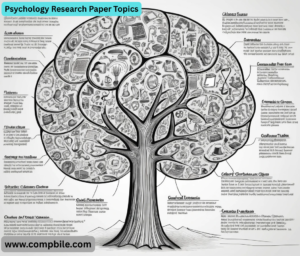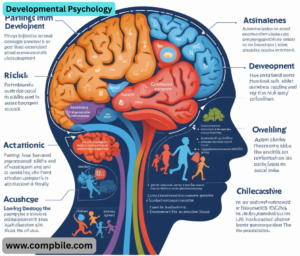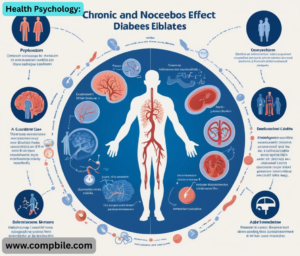Psychology Research Paper Topics. Of course. Here is a comprehensive list of psychology research paper topics, categorized by major subfields. I’ve included a mix of classic and contemporary ideas to spark your interest.
How to Choose a Topic:
- Interest: Pick something you genuinely find fascinating. You’ll spend a lot of time with it.
- Scope: Ensure it’s narrow enough to be researchable within your page limit (e.g., “The impact of Instagram on body image in teenage girls” is better than “Social media and psychology”).
- Resources: Can you find enough credible sources (academic journals, books)?
- Guidance: Run your idea by your instructor to ensure it’s appropriate.
Social Psychology
- Conformity & Obedience: Revisiting Milgram’s obedience experiments in modern contexts (e.g., obedience to algorithms).
- Bystander Effect: Factors that increase or decrease the likelihood of intervention in cyberbullying vs. in-person incidents.
- Cognitive Dissonance: How people justify unhealthy habits (e.g., smoking, poor diet) despite knowing the risks.
- Implicit Bias: The impact of implicit bias on hiring decisions and potential interventions to reduce it.
- Group Polarization: How online echo chambers (e.g., on Reddit, Facebook) intensify group opinions and extremism.
- The Halo Effect: How physical attractiveness influences perceptions of intelligence, trustworthiness, and competence.
- Altruism: The motivational differences between anonymous and public acts of charity.
Clinical & Abnormal Psychology
- Focuses on the diagnosis, causes, and treatment of psychological disorders.
- Therapist Effectiveness: Does therapeutic outcome depend more on the specific technique or on the therapist-client relationship?
- Cultural Considerations: How the manifestation of depression or anxiety differs across cultures.
- The Stigma of Mental Illness: Analyzing the effectiveness of public awareness campaigns in reducing stigma.
- Digital Therapeutics: The efficacy of mental health apps (e.g., Calm, Woebot) for managing mild-to-moderate anxiety.
- Borderline Personality Disorder (BPD): Evaluating the effectiveness of Dialectical Behavior Therapy (DBT) in adolescent populations.
- Post-Traumatic Stress Disorder (PTSD): Comparing traditional exposure therapy with newer treatments like EMDR (Eye Movement Desensitization and Reprocessing).
- The Overdiagnosis Debate: Are conditions like ADHD and Autism Spectrum Disorder being overdiagnosed, and what are the implications?
Cognitive Psychology
- The Misinformation Effect: How fake news and misleading headlines can distort eyewitness memory.
- Cognitive Load: How multitasking with digital devices impacts learning and memory consolidation.
- The Testing Effect: Does the act of taking a test improve long-term recall more than simply re-studying material?
- Face Recognition: The cognitive and neurological differences between prosopagnosia (face blindness) and typical face recognition.
- Decision-Making Heuristics: How biases like the availability heuristic (relying on immediate examples) influence financial decisions.
- The Language-Thought Relationship: Analyzing the Sapir-Whorf hypothesis: does the language we speak shape how we think?
- Dream Content Analysis: Investigating if dream content is influenced by daily stressors or pre-sleep stimuli.
Developmental Psychology
- Focuses on how people change and grow physically, cognitively, and socially throughout the lifespan.
- Parenting Styles: The long-term impacts of authoritative, authoritarian, permissive, and uninvolved parenting on adult attachment styles.
- Screen Time: The effects of excessive screen time on language development, attention spans, and social skills in early childhood.
- Adolescent Brain Development: How neural development in the prefrontal cortex explains risk-taking behavior in teenagers.
- Theory of Mind: How the ability to understand others’ mental states develops in children and whether it is delayed in children with autism.
- Aging and Memory: Differentiating normal age-related memory decline from early signs of dementia.
- Gender Identity Development: The role of social, biological, and cognitive factors in the development of gender identity.
- The Only Child Myth: Analyzing research that challenges the stereotype of only children being less sociable or more selfish.
Biological Psychology (Neuropsychology)
- Focuses on the biological bases of behavior and mental processes.
- The Gut-Brain Axis: Exploring the connection between gut microbiome health and conditions like depression and anxiety.
- Neuroplasticity: How learning a new language or musical instrument in adulthood can change brain structure.
- The Psychology of Pain: How psychological factors (e.g., expectation, distraction) modulate the perception of pain.
- Sleep and Memory Consolidation: The role of different sleep stages (REM vs. non-REM) in forming long-term memories.
- Hormones and Behavior: The impact of oxytocin on trust, social bonding, and romantic attachment.
- Epigenetics of Trauma: How traumatic experiences can cause biological changes that may be passed to subsequent generations.
- Lateralization of Function: Is the idea of being “left-brained” (logical) or “right-brained” (creative) a neurological myth?
Personality Psychology
- The Big 5 (OCEAN): How do personality traits like Openness and Conscientiousness predict career success or life satisfaction?
- Nature vs. Nurture: The heritability of personality traits based on twin and adoption study data.
- Dark Triad Personalities: Examining the relationship between narcissism, Machiavellianism, psychopathy, and online trolling behavior.
- Personality Change: Can core personality traits change significantly after a major life event (e.g., trauma, having a child)?
- Cross-Cultural Personality: Are personality models like the Big 5 universal, or are they influenced by culture?
- The Myers-Briggs Type Indicator (MBTI): A critical analysis of its scientific validity and reliability compared to other personality measures.
Industrial-Organizational (I-O) Psychology
- Applies psychological principles to the workplace.
- Burnout: Identifying the primary causes of employee burnout and effective organizational strategies to prevent it.
- Remote Work: The psychological impacts of long-term remote work on employee productivity, well-being, and sense of belonging.
- Psychology Research Paper Topics. Unconscious Bias in Hiring: The effectiveness of blind recruitment processes in increasing workplace diversity.
- Leadership Styles: Comparing the outcomes of transformational, transactional, and servant leadership styles.
- Employee Motivation: Analyzing the practical application of Self-Determination Theory (autonomy, competence, relatedness) in modern companies.
Emerging & Interdisciplinary Topics
- These topics sit at the crossroads of psychology and other fields, like technology, law, and environmental science.
Cyberpsychology:
- Parasocial Relationships: The one-sided bonds formed with influencers and streamers and their impact on social development and loneliness.
- The psychology of digital anonymity: How it affects disinhibition, aggression, and self-disclosure online.
- The “Online Disinhibition Effect”: Comparing toxic behavior on anonymous platforms (e.g., 4chan) versus identity-linked platforms (e.g., Facebook).
Environmental Psychology:
- Eco-Anxiety: The chronic fear of environmental doom, its prevalence in younger generations, and coping mechanisms.
- The restorative effects of nature: Can exposure to virtual nature (360° videos) provide similar psychological benefits to actual exposure for urban populations?
- The psychology of climate change denial: Exploring the cognitive biases and motivated reasoning that lead to dismissing scientific evidence.
Forensic Psychology:
- The psychology of false confessions: What situational and individual factors lead innocent people to confess to crimes?
- Criminal profiling: A critical analysis of its scientific validity and utility in solving cases.
- The assessment of “fitness to stand trial” and the ethical dilemmas involved.
Health Psychology:
- The placebo and nocebo effect: The mechanisms through which expectation can modulate physiological outcomes.
- Psychoneuroimmunology: How chronic stress compromises the immune system and increases vulnerability to illness.
- The role of personality (e.g., Type A, pessimism) in the development and recovery from cardiovascular disease.
- Adherence to medical advice: Psychological barriers to following treatment plans for chronic illnesses like diabetes.
Deep Dives into Specific Phenomena
- These are more focused topics that allow for a detailed analysis.
The Psychology of Music:
- Does listening to music improve cognitive performance (the “Mozart Effect”), or is it simply a matter of arousal and mood?
- The use of music for emotional regulation: Why people choose specific genres when sad or happy.
- The neurological basis of “earworms” — why certain songs get stuck in our heads.
Moral Psychology:
- Psychology Research Paper Topics. The Trolley Problem and its variants: Using moral dilemmas to understand the conflict between intuitive emotional responses and deliberate reasoning.
- The development of moral reasoning from childhood to adulthood, using Kohlberg’s stages as a framework.
- The psychology of hypocrisy: Why people fail to see the disconnect between their moral standards and their own behavior.
The Self and Identity:
- Imposter Syndrome: Its prevalence in high-achieving populations and its relationship to perfectionism and self-esteem.
- The concept of self-compassion (Kristin Neff) and its role in resilience and mental health compared to self-esteem.
- The psychology of nostalgia: When does it function as a positive force for continuity and meaning, and when does it become maladaptive?
Controversial & Critical Analysis Topics
- These are excellent for argumentative papers that require evaluating evidence and critiquing existing systems.
- The Replication Crisis in Psychology: Analyze the causes (e.g., p-hacking, publication bias) and the reforms being implemented to improve scientific rigor.
- A Critical Examination of Diagnosis: Explore the arguments for and against the DSM-5. Is it a valid medical tool or a subjective social construct that pathologizes normal human experience?
- The Effectiveness of Conversion Therapy: A research-based paper arguing against its practice, analyzing the profound psychological harm it causes, and exploring the ethical mandates for banning it.
- The Dangers of Pop Psychology: Analyze the spread of oversimplified or debunked psychological concepts on social media (e.g., “toxic positivity,” misdiagnosing oneself based on TikTok trends).




